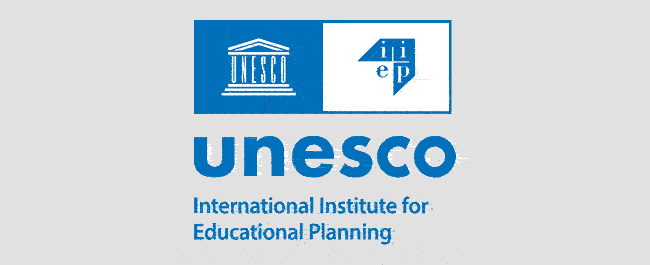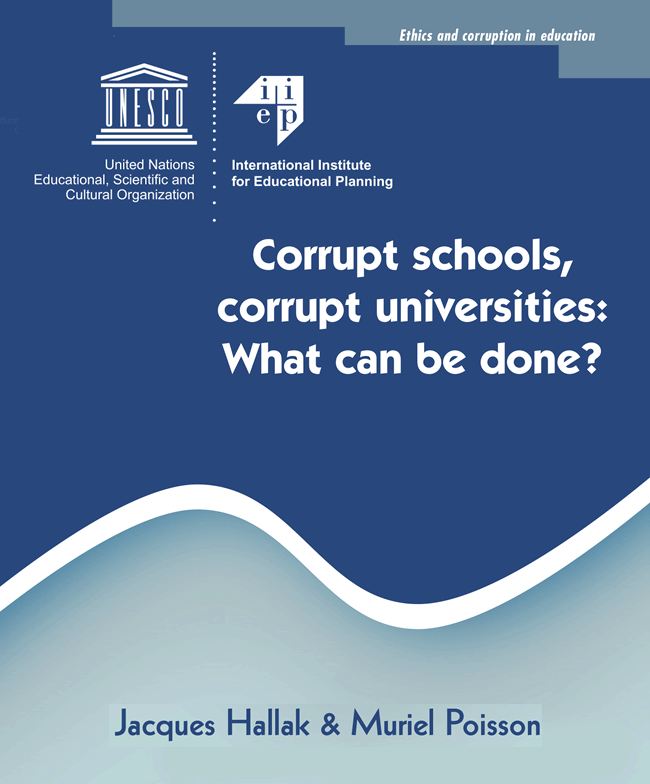« SHISEIDO announces Bollywood Luminary Tamannaah Bhatia as its First Brand Ambassador in India. | Main | India and Australia's Education Ministers announce the opening of two Australian University Campuses in GIFT City, Gujarat. »
November 6, 2023
UNESCO IIEP is working to enhance Transparency and Accountability in Higher Education Institutions to prevent Fraud and Corruption.


Photo: Cover of the UNESCO IIEP publication, “Corrupt Schools, Corrupt Universities: What Can Be Done?” The publication spotlights the need for clear regulations, transparent procedures, public access to information, and strong leadership to combat fraud and corruption in higher education institutions.
Paris, November 5, 2023 — From the outset of its 60-year history, the UNESCO International Institute for Educational Planning (UNESCO IIEP) has worked towards eradicating corruption in education. This fight became even more crucial when the United Nations Convention against Corruption was established.
UNESCO IIEP recognized that corruption has many adverse effects on education, such as reducing efficiency, increasing costs, and harming educational quality. Although corruption in education is a sensitive topic and country-level statistics are scarce, UNESCO IIEP has gathered comparative data on corruption in education on its ETICO platform.
UNESCO IIEP has produced influential publications, hosted high-level policy forums, and trained over 3,000 individuals globally in implementing anti-corruption measures in education. In 2001, it united representatives from organizations like the OECD, World Bank, and Transparency International to launch its first research program on ethics and corruption in education. It followed that by initiating a capacity-building program in partnership with the Open Society Foundations in 2003 to empower nations to implement stringent anti-corruption measures.
UNESCO IIEP has also provided direct technical support to some countries to assess corruption risks systematically and comprehensively and provide tailored policy recommendations. These assessments have been global or specifically focused on sub-sectors, such as preschool, higher education, or technical and vocational training. It has also strengthened the capacity of national teams to develop and implement public expenditure tracking surveys to trace funding flows and reduce leakages.
UNESCO IIEP has focused its recent efforts on the role of citizens in holding authorities accountable. In 2018, it launched a study on the power of open school data to promote citizen control over resources. It led to a global exploration of innovations in available government models.
UNESCO IIEP continues to eradicate corruption in education. In the future, it will investigate how to harness new digital technologies, such as blockchain, artificial intelligence, and big data, to enhance transparency and accountability in educational planning and management.
The recent UNESCO IIEP Policy Forum on Planning Higher Education Integrity was a remarkable event in Paris. The forum gathered nearly 60 higher education experts and stakeholders from around the world to discuss recent and innovative initiatives aimed at improving transparency and reducing opportunities for fraud or corruption at the university level.
The attendees included university vice-chancellors and administrators, researchers, and representatives of education ministries, international agencies, research funding organizations, civil society, students’ organizations, and the media.
According to Muriel Poisson, Head of UNESCO IIEP’s Research and Development Team, planning higher-education integrity might become mandatory for many countries and universities. It is because there is a growing concern among government funders that universities should appropriately use shrinking resources. Additionally, there is a need to protect the reputation of higher education institutions and the trust in their degrees.
Source: UNESCO IIEP
|GlobalGiants.Com|
— The Editor is
A UNESCO-IIEP-Certified Higher Education Planning Consultant.
A Member of the Association of Higher Education Professionals.
A Member of the American Association of University Administrators.
An Active Member of the International Leadership Association (ILA).







Edited & Posted by the Editor | 12:11 PM | Link to this Post







